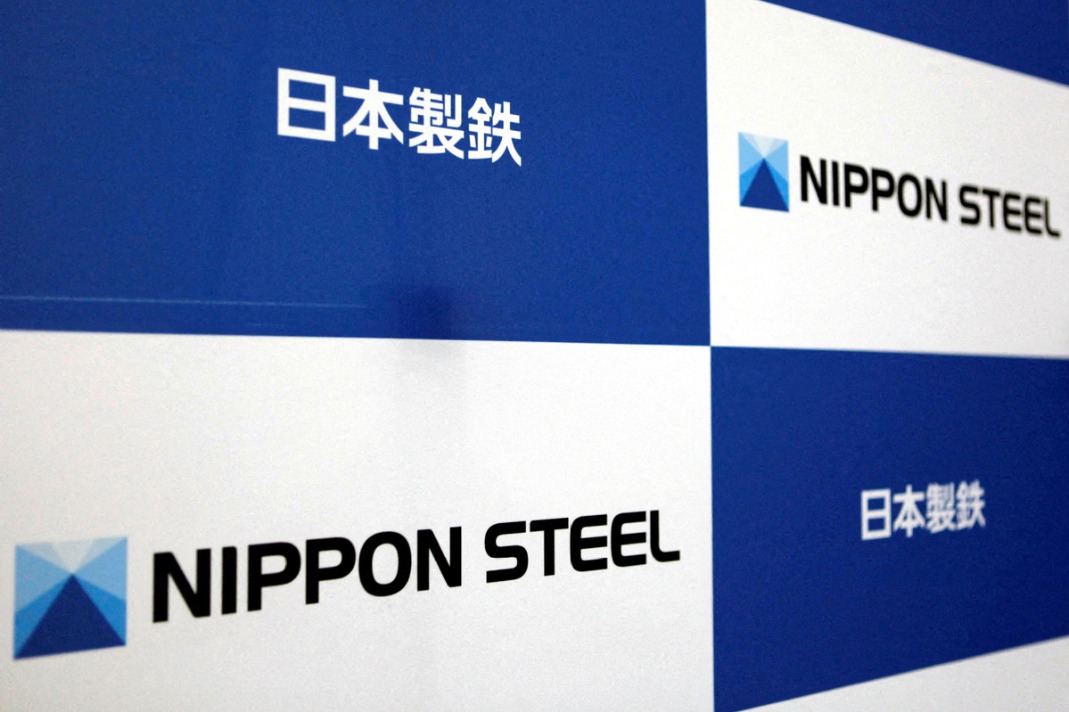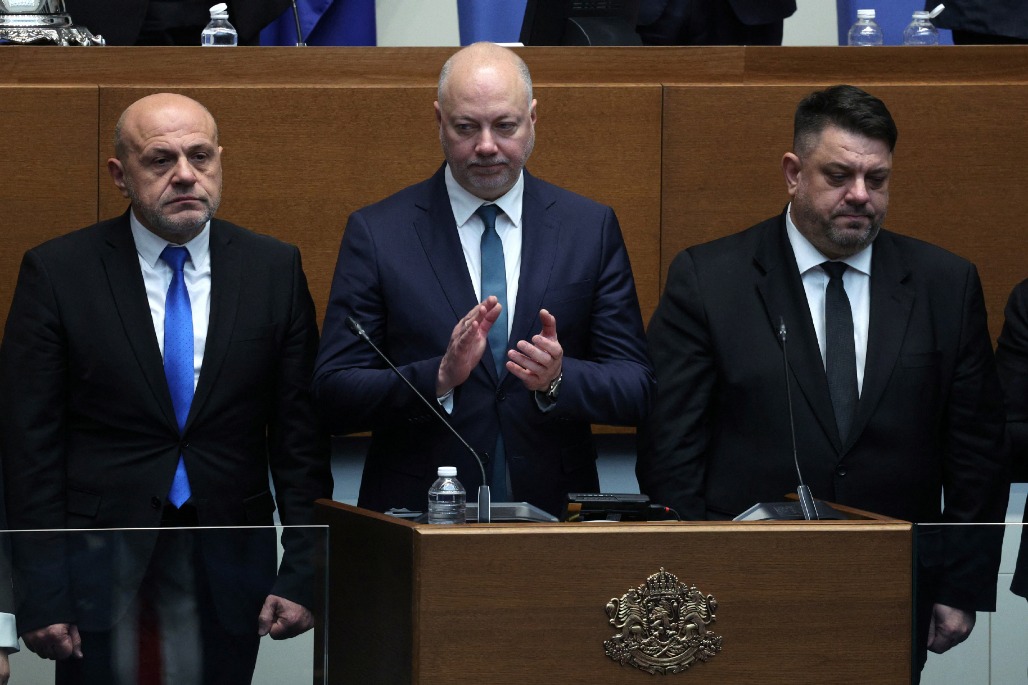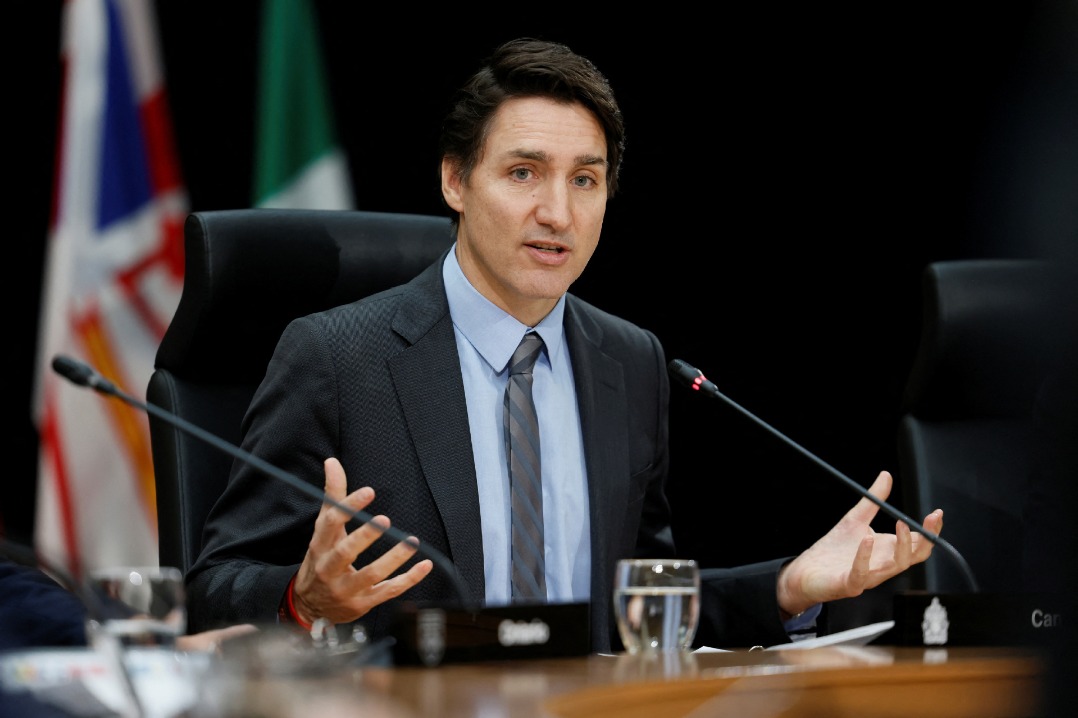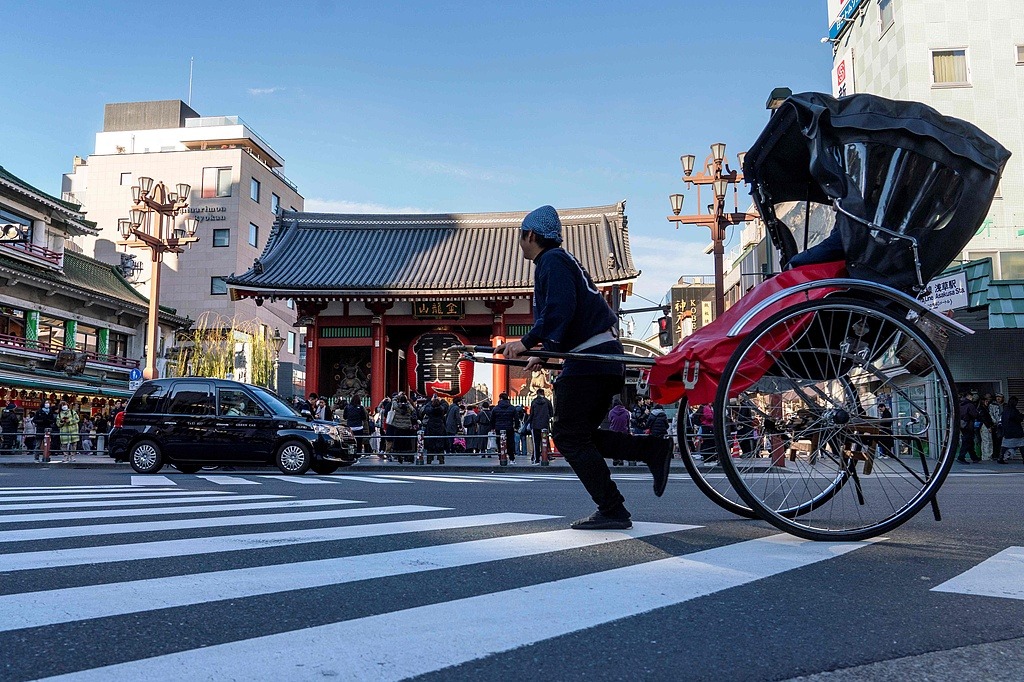New questions raised over Japan-US ties
President's decision to block steel firms' acquisition deal seen as damaging trust

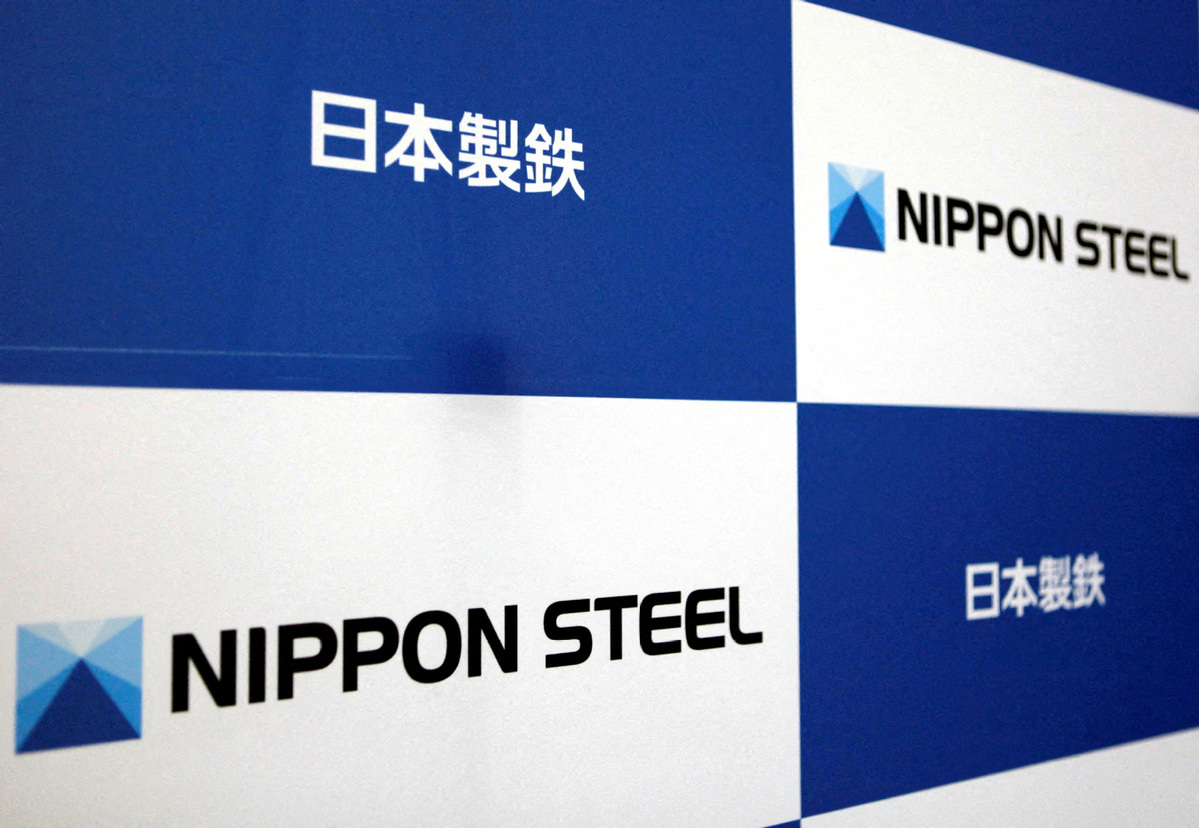
US President Joe Biden's decision to block the acquisition of US Steel by Japan's Nippon Steel has raised fresh questions about the state of economic and diplomatic relations between the United States and its key Asian ally.
Experts see the move as a significant indicator of how Washington perceives its economic ties with Tokyo, if not the broader bilateral relationship. On Jan 3, Biden cited national security concerns for halting the proposed $15 billion deal. However, on Saturday, the companies announced that the US administration would delay enforcing the order until June.
Observers noted that the delay will allow time for court review of the lawsuits filed by both US Steel and Nippon Steel. The lawsuits claim that the Biden administration and the Committee on Foreign Investment in the United States violated constitutional due process guarantees, statutory procedural requirements, and engaged in unlawful political interference.
During a virtual meeting on Monday with Biden and Philippine President Ferdinand Marcos Jr, Japanese Prime Minister Shigeru Ishiba urged the US leader to address concerns brewing in both Japanese and American business communities over the acquisition's uncertain fate.
"Trust has been greatly damaged, and it is unclear what will be required to undo the harm," read an editorial in the Japan Times. "It is difficult to imagine a greater blow to the alliance — but now Japan must wonder if such a shock could be in its future."
Politicians in the US were quick to oppose Nippon Steel's acquisition of US Steel, citing concerns over national security and potential threats to US trade protection. Critics also questioned whether Nippon Steel would safeguard jobs in the US — a concern echoed by the United Steelworkers union, which firmly opposed the deal.
The Yomiuri Shimbun, Japan's largest newspaper in terms of circulation and influence, criticized Biden's order for opening the door to problems in Japan-US relations. Nippon Steel is reportedly the first Japanese company to face such scrutiny on national security grounds.
"It is greatly disappointing that Biden reached his final decision without fully considering the importance of the Japan-US relationship, which has developed through cooperation since the end of World War II," the newspaper's editorial read.
The Yomiuri Shimbun also noted that Biden's actions appear to align with a growing trend toward protectionism, echoing sentiments previously associated with US President-elect Donald Trump, whose "America First" stance emphasized tariff policies and trade barriers.
Inward-looking shift
Critics in Japan see Biden's decision as emblematic of an inward-looking shift in US policy, prompting warnings about the broader implications for bilateral ties.
Former Japanese prime minister Yukio Hatoyama openly criticized Biden in a social media post. "This is a poor decision by politicians who want votes," Hatoyama wrote, urging the Japanese government to support Nippon Steel and calling the situation "an opportunity for Japan's independence".
The backlash highlights growing unease in Tokyo over how Washington's evolving economic priorities might impact its closest allies, raising questions about the durability of trust in the decades-long alliance.
Japan has been the top source of foreign investment in the US for five consecutive years, according to the US Bureau of Economic Analysis. However, The Yomiuri Shimbun cautioned that Biden's "unreasonable" decision to block Nippon Steel's acquisition could dampen future investments in the US.
The US Chamber of Commerce echoed the concern, highlighting Japan's role as an "important and reliable ally" whose investments support nearly 1 million US jobs. "The decision could have a chilling effect on international investment in America," the Chamber warned.
Chen Youjun, a researcher at the Shanghai Institutes for International Studies, interpreted the move as an instance of political interference in business.
"At the political level, the United Steelworkers — a coalition of 1.2 million active and retired members across the US, Canada and the Caribbean — strongly opposed the Nippon Steel deal and has been lobbying aggressively in Washington. Biden's decision reflects the influence of domestic conservative politics," he said.
Chen noted the business advantages of the deal, emphasizing Nippon Steel's technological edge. "Nippon Steel's technology and strength far exceed those of US Steel. Its proposed acquisition could help revitalize the US company, which has supported the deal," he said.
Sarah Bauerle Danzman, a political scientist at Indiana University, wrote on the Atlantic Council website that Biden's decision risks undermining the US' global economic standing. "This creates troubling risks for America's position in the global economy, which could worsen in the years to come," she said.
The Biden administration's move has also raised fears of an expanded use of national security claims to justify intervention in economic transactions. Such overreach could erode the legitimacy of US government actions and encourage other nations to adopt similar reasoning to protect their own industries, potentially disadvantaging US commercial interests, Danzman wrote.
"By labeling Nippon Steel as a national security threat, rather than a national security asset, the United States makes it harder for its allies and partners to trust that it is a reliable partner," she said.
caihong@chinadaily.com.cn
















